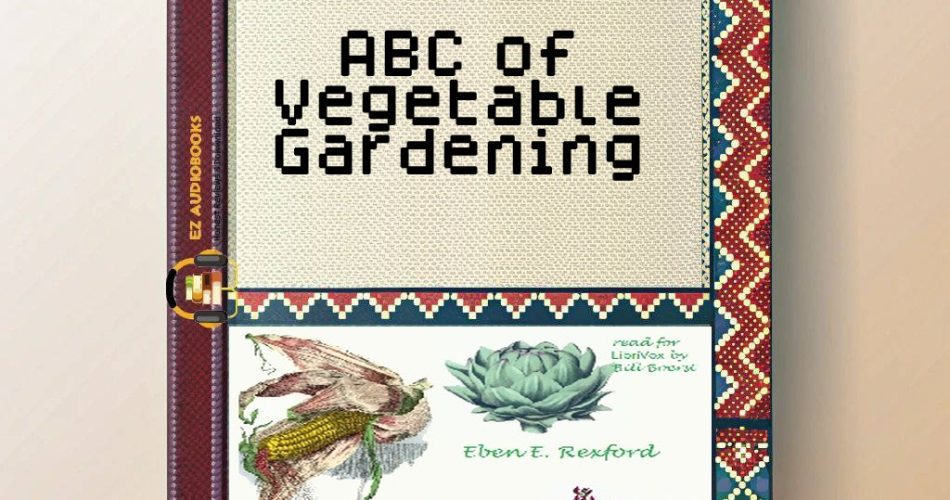Audiobook Sample
Listen to the sample to experience the story.
Please wait while we verify your browser...
- Title: ABC of Vegetable Gardening
- Author: Eben Eugene Rexford
- Narrator: Bill Boerst
- Length: 02:08:52
- Version: Abridged
- Release Date: 09/01/2017
- Publisher: LibriVox
- Genre: Non-Fiction, Science & Technology, Animals & Nature
- ISBN13: SABLIB9787871
As I press play on this LibriVox recording of Eben Eugene Rexford’s “ABC of Vegetable Gardening”, narrated by Bill Boerst, I’m immediately transported to my grandmother’s sun-dappled garden in Hangzhou – where she taught me that soil under fingernails was a mark of wisdom, not dirtiness. This free audiobook version of Rexford’s 1916 horticultural guide offers modern listeners a fascinating temporal bridge between early 20th-century agricultural practices and today’s resurgence of home gardening movements.
What fascinates me most is how Rexford’s manual – originally published when victory gardens would soon become patriotic necessities – functions simultaneously as practical guide and cultural artifact. Through a cultural lens, the chapter ‘expressly for women’ reveals more about 1916 gender roles than gardening, reminding me of research I conducted on domestic manuals during my Berkeley years. The narrator’s steady, avuncular delivery enhances this historical texture, making instructions about hot beds sound like recovered folk wisdom rather than obsolete advice.
The audiobook’s 2-hour duration (surprisingly brisk for comprehensive gardening coverage) benefits from Boerst’s thoughtful narration choices. His pacing mirrors the seasonal rhythms described – deliberate during soil preparation chapters, brighter when discussing spring planting. This reminds me of when my Tokyo students analyzed how Murakami’s translators adjust sentence length to mirror musical references; here, vocal cadence becomes an unspoken commentary on agricultural tempo.
Rexford’s technical guidance holds up remarkably well, particularly regarding crop rotation and natural pest control. His description of companion planting between tomatoes and basil mirrors what I observed in my sister’s pandemic balcony garden last year – proof that some horticultural truths transcend centuries. The audio format shines during these practical sections, allowing listeners to absorb planting schedules while performing household tasks, much like my grandmother hummed gardening songs as she worked.
Modern listeners should contextualize certain passages. When Rexford recommends arsenic for potato bugs, Boerst’s slight pause after the sentence functions as subtle audio commentary. These moments create fascinating cognitive dissonance – like discovering problematic passages in beloved classics during my Harvard textual analysis seminars.
Compared to Liberty Hyde Bailey’s more scientific 1901 work mentioned in the research, Rexford’s strength lies in his conversational accessibility. The audio format enhances this quality, transforming what might feel dated on paper into charming oral history. It’s particularly effective for sequential instructions like building cold frames, where the narrator’s patient repetition of measurements serves auditory learners beautifully.
For contemporary audiences, this free audiobook offers three distinct values: practical gardening advice (about 70% remains relevant), historical insight into early 20th-century life, and meditative listening for nature enthusiasts. The chapter on small gardens particularly resonates today, anticipating urban container gardening trends by a century.
While the digital age offers flashier gardening guides, Rexford’s work – especially in this well-narrated version – provides something rare: the comforting sense that generations before us faced similar struggles with aphids and poor soil, and that solutions often lie in patience and observation rather than technology. As I listen to Boerst describe proper bean trellising, I’m back in Hangzhou, watching my grandmother train vines with bamboo poles, her movements echoing advice first published when she was just a girl.
In scholarly appreciation and shared earthiness,
Prof. Emily Chen

